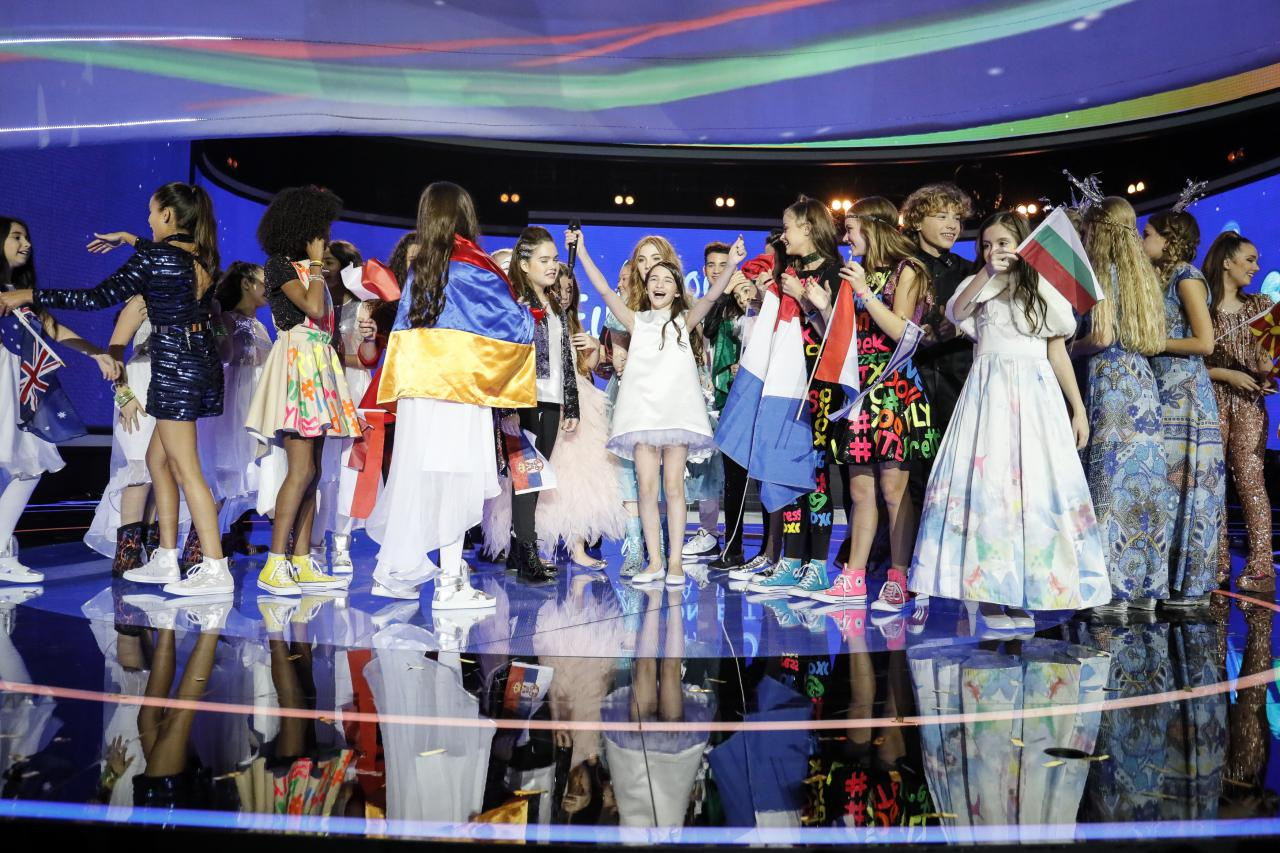
Junior Eurovision attracts biggest audience since 2012!
02 December 2016 at 18:00 CETThis year’s event in Malta attracted 70% more children than normally achieved by the group of broadcast channels and 8% more than the 2015 competition. Junior Eurovision 2016 achieved an average viewing share of 6.1% across 14 markets, 45% higher than the normal average for these channels .
According to data from the Media Intelligence Service at the European Broadcasting Union, 10 out of 14 markets where data is available delivered a stable or higher viewing share than normally achieved in the same time slot. The majority of markets delivered the same share of the audience watching TV at that time compared to the previous year.
Junior Eurovision 2016 hits the target
Earlier this year the Junior Eurovision Steering Group approved a new time slot for the show which was more suited to children and family viewing. The format change was successful in attracting higher than average ratings for the broadcast channels. More specifically the performance of the children and youth markets was particularly strong, notably out-performing the channel average.
Children delivered the strongest share of the audience where Junior Eurovision 2016 achieved an average viewing share of 7.5% compared to the channel average benchmark of 4.3%. In the youth market, Junior Eurovision achieved an average share of 6.1% compared to the channel average benchmark of 2.7%. In particular, there was a very strong viewing share of children in the Netherlands with the broadcaster NPO3 achieving a share of 39.0%, well above the channel average of 18.2%.
The 2016 Junior Eurovision Song Contest was a huge success in Poland which delivered 2.2 million viewers in what was the country’s first appearance in the competition in over a decade. The figure is three times that normally achieved by broadcaster TVP1 in the same time slot. There was however a decline in viewing share year on year in Armenia and Bulgaria. The latter can be explained by the large interest in Junior Eurovision last year when Bulgaria’s capital, Sofia, hosted the contest.
Jon Ola Sand, Head of Live Events at the EBU said, “We are very happy that the changes in this year's format, especially the lowering of the age range of participants, have proven to be successful in attracting an increasingly younger audience to the show. The outstanding rise in the general number of viewers shows that the Junior Eurovision Song Contest is an event that unites European audiences and sets us up well to start preparations for the 2017 edition”.
Gert Kark, Supervisor of the Junior Eurovision Song Contest said, “PBS Malta worked so hard to give audiences a great show and we thank them for all their hard work. We're so pleased audiences across Europe enjoyed the 2016 Junior Eurovision Song Contest and responded positively to the format changes this year. We look forward to building on this success for next year's edition."